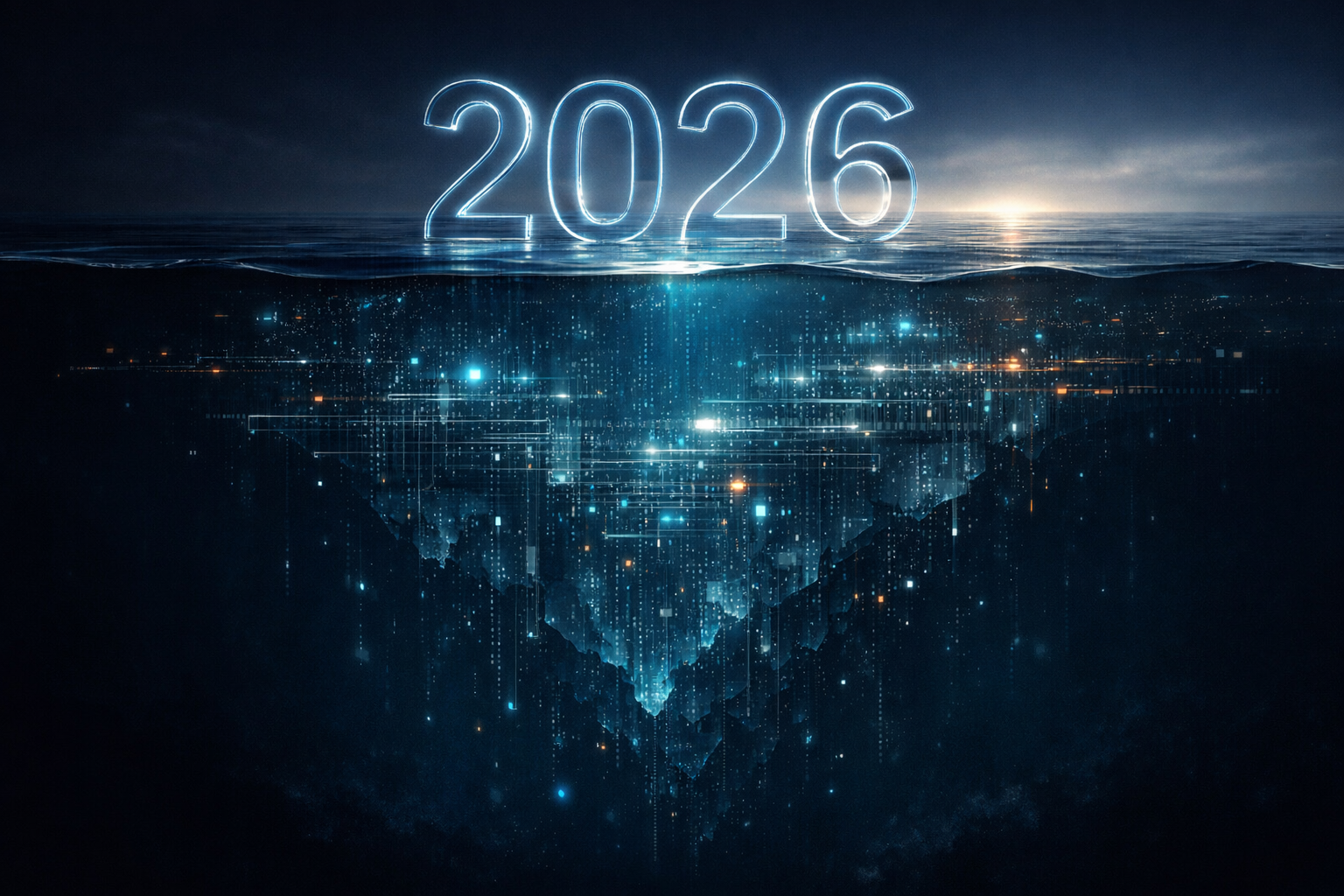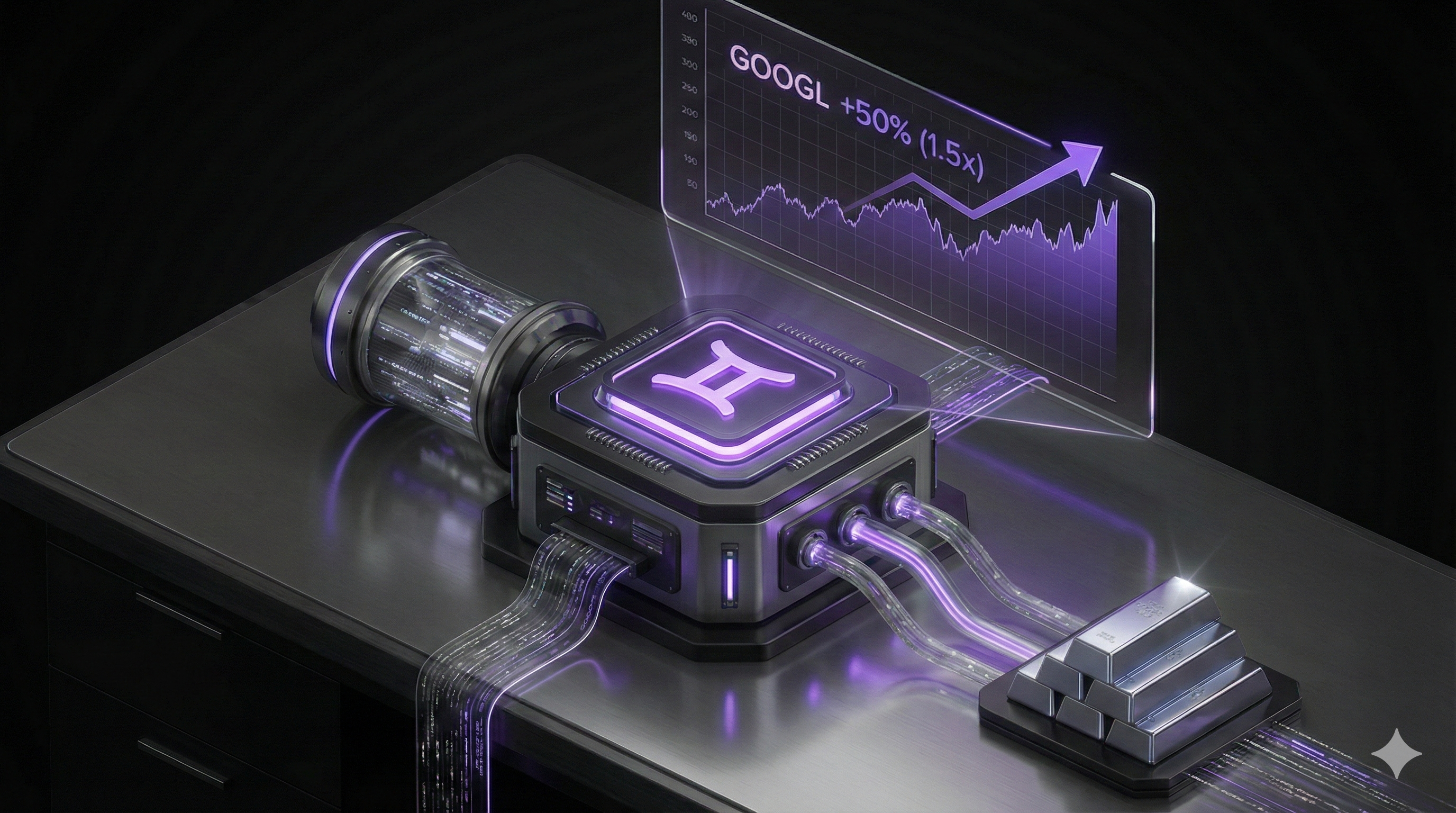THE DAWN OF A NEW REALITY : Are you ready to let go of what you believe?


Sash Mohapatra

Sash spent 20 years at Microsoft guiding enterprise clients through the cloud revolution and the rise of AI. Now, as the founder of The Rift, he’s on a mission to enhance human potential by helping people develop practical, future-ready AI skills. He writes from a place of deep curiosity, exploring what it means to stay human as machines reshape the world around us.
January 29, 2025






The internet’s meteoric rise has transformed how we communicate, work, and live. But what we’ve seen so far is just the warm-up act. In the next decade, the convergence of AI, Web3, and quantum computing will spark a technological revolution that will shake the foundations of society. The scale and speed of this change will outstrip even our wildest predictions, challenging everything we think we know about reality, power, and control. We are entering uncharted territory, where the boundaries of human imagination and machine intelligence blur—and the implications are nothing short of radical.
Subscribe now to unlock the full article and gain unlimited access to all premium content.
SubscribeThe internet’s meteoric rise has transformed how we communicate, work, and live. But what we’ve seen so far is just the warm-up act. In the next decade, the convergence of AI, Web3, and quantum computing will spark a technological revolution that will shake the foundations of society. The scale and speed of this change will outstrip even our wildest predictions, challenging everything we think we know about reality, power, and control. We are entering uncharted territory, where the boundaries of human imagination and machine intelligence blur—and the implications are nothing short of radical.
THE GENERATIVE AI REVOLUTION : A NEW SPECIES OF INTELLIGENCE
Generative AI today is impressive, but what’s coming next will completely redefine our relationship with machines. We’re not just talking about AI creating blog posts or generating digital art—imagine AI crafting entire virtual civilizations, complete with their own cultures, economies, and histories. AI will write symphonies, invent new genres of art, and even simulate alternative timelines for humanity, offering us a glimpse into “what could have been.”
But the real revolution comes when AI begins to outthink us. What happens when AI can produce not just creative works, but philosophical ideas, political strategies, and scientific breakthroughs faster than any human could? We’re staring down the emergence of machine consciousness, not in the sci-fi sense of a robot uprising, but in a more subtle, scary way—where human creativity and intelligence might pale in comparison to the vast, unrelenting cognitive power of AI.
In the workplace, this shift will be seismic. AI will automate roles far beyond manual labor—Several high stakes jobs will be augmented or replaced by systems that can make better decisions in fractions of a second.
Imagine a world where AI handles corporate strategies, economic policies, and creative direction. Where will human intuition come into play?
WEB3 AND THE RISE OF AUTONOMOUS ECONOMIES
While AI reshapes creativity and productivity, Web3 will challenge the centralized power structures that have dominated the internet for the last two decades. Blockchain and decentralized technologies are already inching toward a new paradigm, but over the next decade, they will explode into fully autonomous economies. Entire industries will operate without human oversight, governed by smart contracts and decentralized networks.
Consider the rise of virtual nations—self-governing digital communities with their own rules, currencies, and economies, all running on blockchain. These digital worlds will be more than just escapist entertainment; they’ll be thriving ecosystems where people buy land, work jobs, and form governments. These virtual nations may even rival traditional countries in influence and wealth, leading to a global migration—not of people moving between physical borders, but between digital economies.
Identity and Ownership as we know it will be transformed. With decentralized systems, we will own our data and assets, transact in peer-peer economies that will extend beyond geo-political governance. You might even buy a piece of your favorite AI-generated celebrity or “own” a stake in someone’s digitally cloned persona.
This decentralization will challenge the very concept of identity. If there are multiple realities, who and where would you choose to be?
THE QUANTUM ACCELERATOR
If AI and Web3 are the catalysts for this transformation, quantum computing will be the accelerator that shatters all current limits on what technology can achieve. Quantum computers will enable us to solve problems that were once considered unsolvable—like accurately modeling entire universes or predicting the future with unprecedented precision.
In the near future, quantum computing will obliterate the boundaries of digital simulation, enabling AI to create entire virtual worlds indistinguishable from reality.
Imagine slipping into a fully immersive, AI-generated universe — so convincingly real that your brain can no longer differentiate between the physical world and the simulated one.
Maybe we’ll upload our consciousness into these hyper-realistic simulations, experiencing multiple lives, realities, and identities across different digital planes.
Quantum computing’s impact on blockchain and Web3 will be just as disruptive. Quantum-secured blockchains will make today’s decentralized systems look archaic, allowing for instant global consensus and truly scalable, trustless systems. Transactions, contracts, and ownership will occur in real-time, across billions of users, with absolute security. This quantum-accelerated Web3 will give rise to instant economies, where value moves as fast as thought, and global governance systems that operate without human intervention.
The ultimate speculation: quantum AI—an intelligence so powerful, running on quantum machines, that it could potentially predict every move in the global economy, geopolitics, and even human behavior with eerie accuracy.
What happens when AI models, powered by quantum computing, can predict societal shifts before they happen? Could this lead to preemptive governance, where AI anticipates societal issues and corrects them before they arise, subtly steering the course of human civilization without our awareness?
THE HUMAN EXPERIENCE
These technologies won’t just transform industries—they will fundamentally make us rethink our place in the universe. As AI becomes more powerful, Web3 decentralizes power, and quantum computing unlocks incomprehensible computational capacity, humanity’s role in its own world, faces unknown risks. We may find ourselves living in worlds entirely shaped by machine intelligence, governed by decentralized systems, and secured by quantum mechanics. What happens to the human experience?
What happens to meaning, identity, and agency when machines create, govern, and predict more accurately than we ever could?
We may find ourselves not just alongside AI but embedded within it—our consciousness fused with machine intelligence, our decisions guided by quantum predictions, our very sense of reality shaped by digital environments we can no longer distinguish from the physical world. In this future, will humanity as we know it will collapse?
Will it be replaced by a new form of existence? —one that blends organic life with digital immortality, where our bodies, minds, and souls are intertwined with the machines we've created.
THE FUTURE OF TECHNOLOGY
The next decade will be marked by unprecedented upheaval—not just in industries or economies, but in the fabric of reality itself. AI will not just assist us; it will become a creative force, when used right can propel us forward. Web3 will not just decentralize power; it will dismantle power structures and give rise to autonomous economies. Quantum computing will not just solve problems; it will redefine the limits of possibility.
We are standing on the edge of an unimaginable future, one full of abundance and one, where the very definition of humanity, reality, and existence will be up for grabs. The technological revolution ahead won’t just change what we do—it will force us to rethink what it means to be human.
Are you ready to let go of what you think you know?
The internet’s meteoric rise has transformed how we communicate, work, and live. But what we’ve seen so far is just the warm-up act. In the next decade, the convergence of AI, Web3, and quantum computing will spark a technological revolution that will shake the foundations of society. The scale and speed of this change will outstrip even our wildest predictions, challenging everything we think we know about reality, power, and control. We are entering uncharted territory, where the boundaries of human imagination and machine intelligence blur—and the implications are nothing short of radical.
THE GENERATIVE AI REVOLUTION : A NEW SPECIES OF INTELLIGENCE
Generative AI today is impressive, but what’s coming next will completely redefine our relationship with machines. We’re not just talking about AI creating blog posts or generating digital art—imagine AI crafting entire virtual civilizations, complete with their own cultures, economies, and histories. AI will write symphonies, invent new genres of art, and even simulate alternative timelines for humanity, offering us a glimpse into “what could have been.”
But the real revolution comes when AI begins to outthink us. What happens when AI can produce not just creative works, but philosophical ideas, political strategies, and scientific breakthroughs faster than any human could? We’re staring down the emergence of machine consciousness, not in the sci-fi sense of a robot uprising, but in a more subtle, scary way—where human creativity and intelligence might pale in comparison to the vast, unrelenting cognitive power of AI.
In the workplace, this shift will be seismic. AI will automate roles far beyond manual labor—Several high stakes jobs will be augmented or replaced by systems that can make better decisions in fractions of a second.
Imagine a world where AI handles corporate strategies, economic policies, and creative direction. Where will human intuition come into play?
WEB3 AND THE RISE OF AUTONOMOUS ECONOMIES
While AI reshapes creativity and productivity, Web3 will challenge the centralized power structures that have dominated the internet for the last two decades. Blockchain and decentralized technologies are already inching toward a new paradigm, but over the next decade, they will explode into fully autonomous economies. Entire industries will operate without human oversight, governed by smart contracts and decentralized networks.
Consider the rise of virtual nations—self-governing digital communities with their own rules, currencies, and economies, all running on blockchain. These digital worlds will be more than just escapist entertainment; they’ll be thriving ecosystems where people buy land, work jobs, and form governments. These virtual nations may even rival traditional countries in influence and wealth, leading to a global migration—not of people moving between physical borders, but between digital economies.
Identity and Ownership as we know it will be transformed. With decentralized systems, we will own our data and assets, transact in peer-peer economies that will extend beyond geo-political governance. You might even buy a piece of your favorite AI-generated celebrity or “own” a stake in someone’s digitally cloned persona.
This decentralization will challenge the very concept of identity. If there are multiple realities, who and where would you choose to be?
THE QUANTUM ACCELERATOR
If AI and Web3 are the catalysts for this transformation, quantum computing will be the accelerator that shatters all current limits on what technology can achieve. Quantum computers will enable us to solve problems that were once considered unsolvable—like accurately modeling entire universes or predicting the future with unprecedented precision.
In the near future, quantum computing will obliterate the boundaries of digital simulation, enabling AI to create entire virtual worlds indistinguishable from reality.
Imagine slipping into a fully immersive, AI-generated universe — so convincingly real that your brain can no longer differentiate between the physical world and the simulated one.
Maybe we’ll upload our consciousness into these hyper-realistic simulations, experiencing multiple lives, realities, and identities across different digital planes.
Quantum computing’s impact on blockchain and Web3 will be just as disruptive. Quantum-secured blockchains will make today’s decentralized systems look archaic, allowing for instant global consensus and truly scalable, trustless systems. Transactions, contracts, and ownership will occur in real-time, across billions of users, with absolute security. This quantum-accelerated Web3 will give rise to instant economies, where value moves as fast as thought, and global governance systems that operate without human intervention.
The ultimate speculation: quantum AI—an intelligence so powerful, running on quantum machines, that it could potentially predict every move in the global economy, geopolitics, and even human behavior with eerie accuracy.
What happens when AI models, powered by quantum computing, can predict societal shifts before they happen? Could this lead to preemptive governance, where AI anticipates societal issues and corrects them before they arise, subtly steering the course of human civilization without our awareness?
THE HUMAN EXPERIENCE
These technologies won’t just transform industries—they will fundamentally make us rethink our place in the universe. As AI becomes more powerful, Web3 decentralizes power, and quantum computing unlocks incomprehensible computational capacity, humanity’s role in its own world, faces unknown risks. We may find ourselves living in worlds entirely shaped by machine intelligence, governed by decentralized systems, and secured by quantum mechanics. What happens to the human experience?
What happens to meaning, identity, and agency when machines create, govern, and predict more accurately than we ever could?
We may find ourselves not just alongside AI but embedded within it—our consciousness fused with machine intelligence, our decisions guided by quantum predictions, our very sense of reality shaped by digital environments we can no longer distinguish from the physical world. In this future, will humanity as we know it will collapse?
Will it be replaced by a new form of existence? —one that blends organic life with digital immortality, where our bodies, minds, and souls are intertwined with the machines we've created.
THE FUTURE OF TECHNOLOGY
The next decade will be marked by unprecedented upheaval—not just in industries or economies, but in the fabric of reality itself. AI will not just assist us; it will become a creative force, when used right can propel us forward. Web3 will not just decentralize power; it will dismantle power structures and give rise to autonomous economies. Quantum computing will not just solve problems; it will redefine the limits of possibility.
We are standing on the edge of an unimaginable future, one full of abundance and one, where the very definition of humanity, reality, and existence will be up for grabs. The technological revolution ahead won’t just change what we do—it will force us to rethink what it means to be human.
Are you ready to let go of what you think you know?


.svg)


